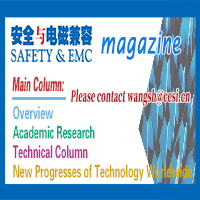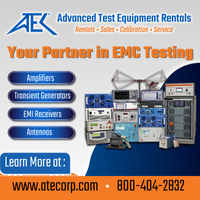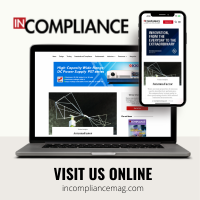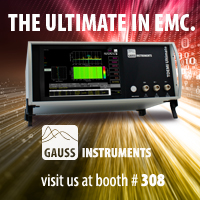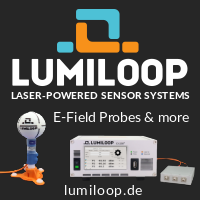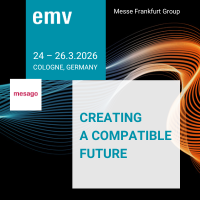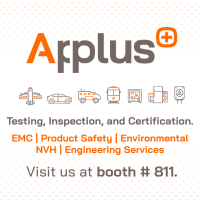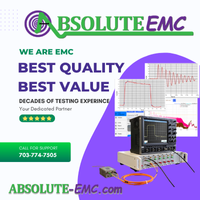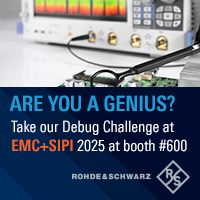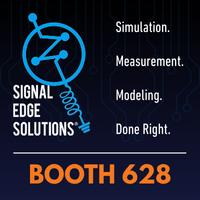Call for Submissions is Open!
The IEEE EMC Society is seeking original, unpublished papers covering all technologies that are affected by EMC, Signal & Power Integrity.
Join us in Raleigh, NC. Share your insight, ask questions, learn from the experts/innovators and see new products at the 2025 IEEE International Symposium on Electromagnetic Compatibility, Signal & Power Integrity. Your published paper will be seen by thousands in the EMC community and across the wide array of disciplines that look to the IEEE EMC Society for technical guidance. In addition, it will be uploaded to IEEE Xplore® with the exposure and recognition that brings.
The committee proposes Special Topic Areas: Biomedical Devices, DC Electrification / Microgrids, EMI/EMC issues for transportation electrification, Wireless Charging; Intentional EMI and Cybersecurity; AI/ML for EMC and SIPI Problems.
Special Sessions are unique dedicated sessions which can be created by working with the Technical Committees. If interested, you should discuss this with one of the Technical Committees to act as the sponsor.
Abstract-Reviewed Papers are an alternative to the 4–6-page Traditional Paper that enables Authors to present their work without the burden of writing a full manuscript. Abstract-Reviewed Papers have a later submission deadline and only require an extended abstract (approximately one page in length).
Poster Papers are Traditional Papers for which the Author chooses to present their work in an interactive, poster session instead of the typical classroom style presentation.
Workshops & Tutorials are an option for authors covering a fundamental topic, a complex project, or a large dataset. Presentation proposals are submitted instead of a journal paper, and presentation materials are collected after the proposal is accepted.
Experiments & Demonstrations are for contributors who prefer to share their work as live experiments or demonstrations.
Topics of Interest
TC-1 EMC Management
- Personal & Laboratory Accreditation
- EMC Education & Awareness
- Legal Issues
TC-2 EMC Measurements
- Techniques
- Test Instrumentation & Facilities
- Standards and Regulations
- Measurement Uncertainty
TC-3 EMC Environment
- Signal Environment
- Atmospheric & Manmade Noise
- Characterization
TC-4 EM Interference Control
- Shielding
- Gaskets
- Cables
- Connectors
- Grounding & PCB Layout
TC-5 High Power Electromagnetics
- ESD & Transients
- EMP
- IEMI & Lightning
- Geomagnetic Storm EMC
TC-6 Spectrum Engineering
- Characterization and Modeling
- Design
- Adaptive Interference Mitigation
TC-7 Electrical System and Power Electronics EMC
- Power Quality
- Conducted Emissions and Immunity
- Power Conversion
- Transportation & EVs
- Grid
TC-8 Aeronautics and Space EMC
- Aircraft
- Atmospheric Environment
- Drones
- Spacecraft
- Missiles
TC-9 Computational Electromagnetics
- Modeling & Simulation
- Multi-Physics Techniques
- Tools
- Applications
TC-10 Signal and Power Integrity
- Interconnects
- Modeling & Characterization
- Crosstalk
- Jitter
- Noise
TC-11 Nanotechnology & Advanced Materials
- Nanomaterials & Nanostructures
- Smart Materials
TC-12 EMC Wireless Technologies
- EMC Planning/Testing/Specifications
- Wireless Coexistence
SC-1 Smart Grid EMC
- Renewable Generation
- Grid Communications
SC-3 Machine Learning and Artificial Intelligence in EMC and SIPI
- Deep Neural Networks
- Support Vector Machines
- Gaussian Process Regression
- Bayesian Optimization
Key Dates
| CALL FOR SUBMISSIONS KEY DATES |
|---|
| NOVEMBER 1, 2024: Submission Site Opens |
| DECEMBER 11, 2024: Submission Deadline for Special Session Proposals |
Deadline Extended to January 17! |
| FEBRUARY 3, 2025: Submission Deadline for Workshops & Tutorials and Experiments & Demonstrations Proposals |
| FEBRUARY 24, 2025: Notification of Acceptance/Rejection for Traditional and Special Session Papers |
| MARCH 10, 2025: Submission Deadline for Abstract-Reviewed Papers |
| MARCH 10, 2025: Notification of Acceptance/Rejection for Workshops & Tutorials and Experiments & Demonstrations |
| MARCH 24, 2025: Submission Deadline for Revised Traditional and Special Session Papers |
| APRIL 25, 2025: Notification of Acceptance/Rejection for Traditional, Abstract-Reviewed, and Special Session Papers |
Deadline Extended to May 23! |
Guidelines for Authors & Session Organizers
TRADITIONAL PAPERS
A preliminary manuscript (4 – 6 pages), including all relevant results and conclusions.
ABSTRACT-REVIEWED PAPERS
An extended abstract (one page), including relevant results and conclusions.
SPECIAL SESSIONS
A proposal that includes:
- Title of Special Session
- Abstract detailing the content of the session
- Statement of what makes the session special
- List of planned authors and paper subjects with titles, if available
- Primary and secondary audience
WORKSHOPS & TUTORIALS
A proposal that includes:
- Title of Workshop or Tutorial
- Format: Workshop or Tutorial
- Abstract describing the workshop/tutorial, including objectives, content, and novelty
- List of planned presenters and affiliations with topics/titles
- Primary and secondary Audience
EXPERIMENTS & DEMONSTRATIONS
A proposal that includes:
- Title of Experiment or Demonstration
- Abstract describing the experiment or demonstration with sufficient detail for the chairs to review
- List of presenters and affiliations
- A detailed listing of any test equipment required
EMC Society policy is that commercialism shall be prohibited in all workshops and technical sessions. This applies to the written paper or notes as well as any presentation format.
All paper and proposal submissions will be uploaded into the Review System using the link provided on the symposium website beginning November 1, 2024. During the electronic submission process, a unique author code is created for tracking purposes. Failure to comply with submission requirements may result in rejection.
Presentations (30 minutes total) for Traditional, Special and Abstract-Reviewed Papers will be a 25-minute LIVE presentation in-person followed by a short question and answer period. Times will vary for Workshops and Tutorials based upon the number of presentations in any given session. Further details will be communicated to authors in due course.
Criteria for Paper Acceptance
- Importance of Topic: Does it have direct significance to the EMC, Signal and Power Integrity community?
- Technical Sophistication and Depth: Does it present information that is a significant contribution, advancement, application, or refinement of the state of the art? Does it expose the reader to a higher knowledge level than currently available from other sources? Is it clear that the work has been substantially completed or is the submission an interim progress report on a long-term project?
- Readability, Clarity, and Presentation: Is the value of the submission clearly defined? Is the material written in clear and concise English with topics presented in an organized and logical manner?
- Novelty and Originality: Does it propose a new, unique, and unpublished concept or expand on an existing premise from a unique point of view? Does it present new information on an EMC, Signal or Power Integrity issue that is still in the developmental stage? Note: Authors should only submit original work that has neither appeared elsewhere for publication, nor which is under review for another publication. If authors have used their own previously published work(s) as a basis for a new submission, they are required to cite the previous work(s) and very briefly indicate how the new submission offers substantive novel contributions beyond those of the previously published work(s). (PSPB 8.2.1.B.11)
Student Paper Contest
Graduate and undergraduate authors are eligible for the Best Student Paper contest. The student must be the primary author and should indicate that they wish to be considered for the contest when submitting the preliminary manuscript. Each student’s professor will be asked to certify that the paper is primarily the work of the student. It is expected that the co-authors of student papers will be limited to those who provided DIRECT contributions to the paper; in general cases the limit is no more than six authors total, including the student.
Student Hardware Contest
A Student Hardware design contest is also being held. Undergraduate, graduate, Ph.D. Students at university/college are eligible to participate in the contest. Topic: Details to follow on symposium website.

